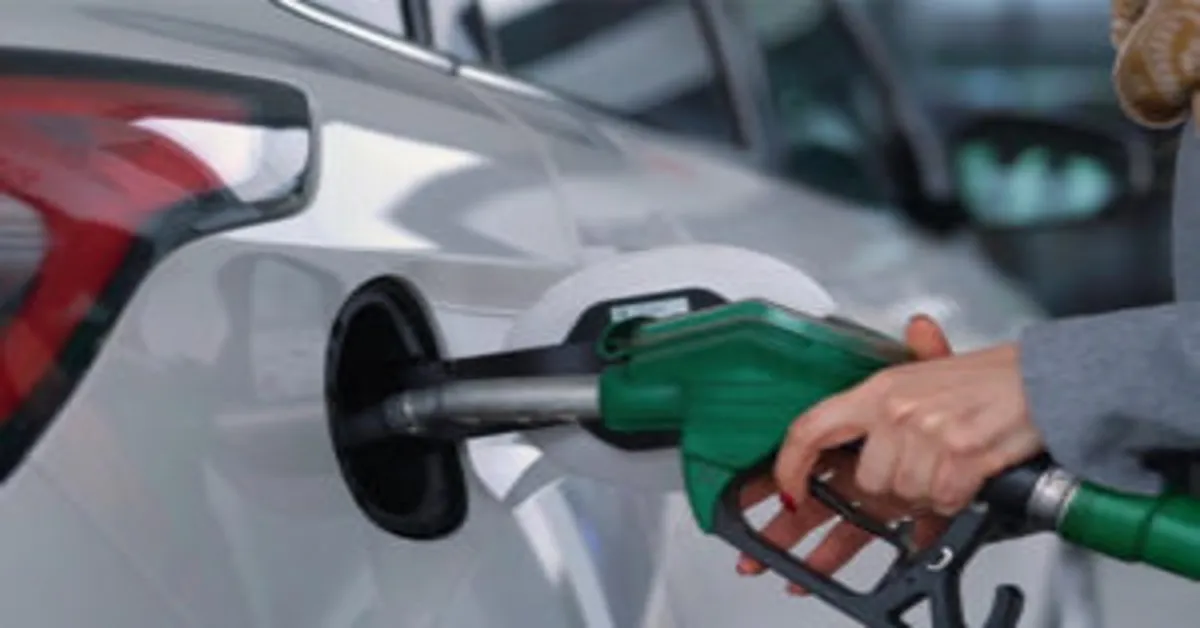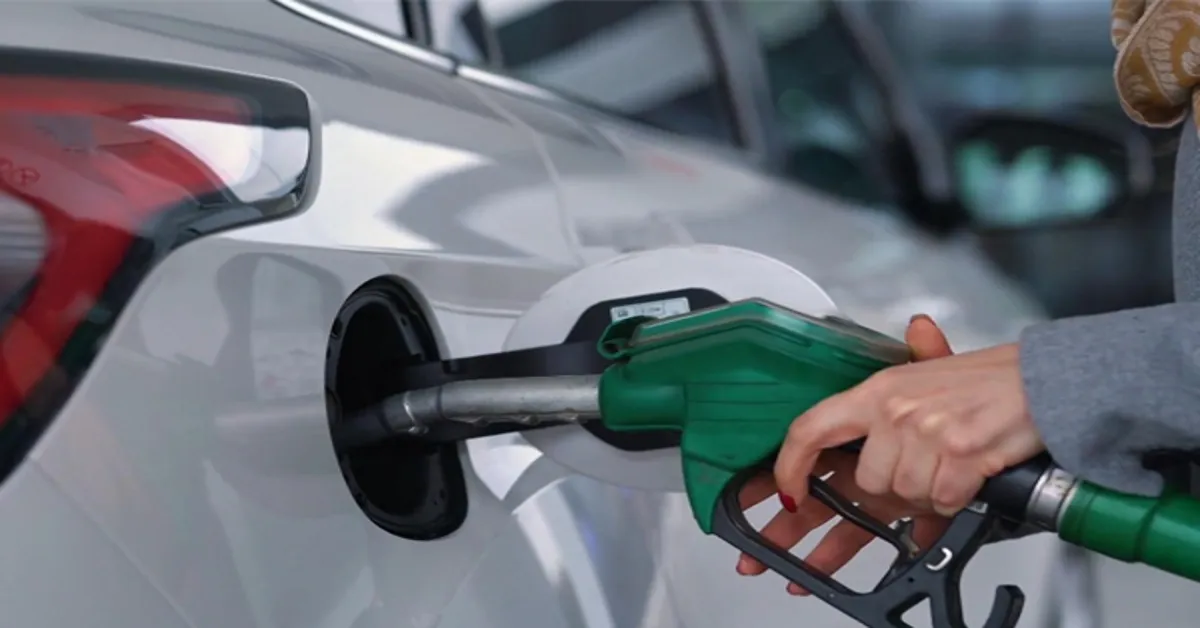The first snowflakes land on your windshield, signaling the start of winter. As you navigate the chilly roads, you can almost hear your vehicle gulping down fuel faster than usual. **Boosting your vehicle’s fuel efficiency during winter months** can be a game-changer, shielding your pocket from steep gas bills and keeping your vehicle in optimal performance.
This blog walks you through practical tips and strategies to maintain your car’s fuel efficiency in the biting cold. Yes, winter can be tough, but so can your vehicle’s fuel economy with the right approach and knowledge. So, buckle up for a journey that promises a blend of learning, saving, and eco-friendliness.
Key Takeaway
- Winter conditions can significantly reduce a vehicle’s fuel efficiency, leading to higher gas bills and less optimal vehicle performance.
- Adopting practical strategies and tips can help boost a vehicle’s fuel efficiency during the cold months.
- These strategies not only promise potential cost savings but also contribute to a more environmentally friendly approach to vehicle use.
- Proper knowledge and understanding of these strategies are essential to effectively combat the fuel efficiency challenge that winter poses.
- The aim is to equip vehicle owners with the necessary tools and knowledge to navigate the winter months without compromising their vehicle’s fuel economy.
Understanding Fuel Efficiency
Maximizing your vehicle’s fuel efficiency during the winter months can be a challenging task. The cold weather can impact your car’s performance and increase fuel consumption. However, there are several strategies you can implement to combat this issue.
Firstly, ensure your tires are properly inflated. Under-inflated tires can increase fuel consumption by up to 3%. Secondly, limit the use of your car’s heater.
While it’s essential for comfort, excessive use can drain your fuel. Lastly, avoid excessive idling. It’s a common misconception that cars need to warm up before driving in cold weather.
In reality, idling for long periods can waste fuel and cause unnecessary wear on your engine. By following these tips, you can boost your vehicle’s fuel efficiency during the winter months, saving money and reducing your environmental impact.
Boosting Your Vehicle’s Fuel Efficiency During Winter Months
| Tips | Description | Benefit |
|---|---|---|
| Maintain Proper Tire Pressure | During winter, cold temperatures can cause tire pressure to drop, which can affect fuel efficiency. It’s important to check your tire pressure regularly and maintain it at the recommended level. | Keeping tire pressure at the proper level can improve your car’s gas mileage by up to 3%. |
| Limit Idle Time | Many people leave their vehicles running in the winter to warm them up, but excessive idling can waste fuel. Limit idle time to save gas. | According to the U.S Department of Energy, idling can use a quarter to a half gallon of fuel per hour. |
| Use the Right Oil | Using the right engine oil during winter is critical for maintaining fuel efficiency. Check your vehicle’s manual for the recommended oil for cold weather. | Using the correct oil can improve your fuel economy by 1-2%. |
| Remove Excess Weight | Extra weight from items like heavy winter gear can decrease your vehicle’s fuel efficiency. Remove unnecessary items from your car to reduce weight. | The Department of Energy states that an extra 100 pounds in your vehicle could reduce your MPG by about 1%. |
| Perform Regular Maintenance | Regular vehicle maintenance, including tune-ups and oil changes, can help your vehicle run more efficiently in the cold weather. | Keeping your car in shape can improve its gas mileage by an average of 4%. |

Pre-Winter Vehicle Preparations
Boosting Your Vehicle’s Fuel Efficiency During Winter Months is a crucial act for car owners that can result in significant savings. During the colder months, your vehicle’s fuel economy can drop by as much as 20%. This is due to factors such as increased engine and transmission friction, longer warm-up times, and increased use of heating and electrical systems.
However, by adopting some simple strategies like maintaining correct tire pressure, limiting idling, and using the right oil, you can increase your vehicle’s fuel efficiency. This will not only save you money, but also help reduce the environmental impact of your driving. So, get ready to give your car a winter fuel-efficiency boost and keep your wallet happy.
Driving Habits and Fuel Efficiency
Boosting Your Vehicle’s Fuel Efficiency During Winter Months is not just about saving money on fuel costs; it’s also about reducing your carbon footprint and making your vehicle last longer. With a few simple steps, you can increase your car’s fuel efficiency even when the temperatures drop. Firstly, maintain your vehicle regularly.
Ensuring your car is in top condition is key to fuel efficiency. This includes checking tire pressure, changing oil regularly, and keeping the engine tuned. Secondly, limit idling.
It’s tempting to warm up your car for a long time during winter, but excessive idling wastes fuel. Limit warm-up idling to no more than 30 seconds. Thirdly, drive smoothly and slowly.
Aggressive driving wastes fuel, so take it easy on the accelerator. Lastly, plan your trips wisely. Combining multiple errands into one trip will limit the amount of time your car spends on the road, thus reducing fuel consumption.
By following these tips, you can boost your vehicle’s fuel efficiency during winter months.
Utilizing Vehicle Features Correctly
Boosting Your Vehicle’s Fuel Efficiency During Winter Months is a task that many vehicle owners face. The chilly temperatures and harsh conditions can take a toll on your vehicle’s performance, leading to increased fuel consumption. However, there are ways to combat this issue and maintain optimal fuel efficiency.
Regular maintenance checks, using the right oil, and keeping your tires properly inflated are some of the methods that can help. Moreover, reducing idle time and practicing smooth driving can also contribute significantly to fuel economy. In this regard, understanding your vehicle’s requirements and adapting your driving habits can lead to considerable savings during the winter months.
Regular Vehicle Maintenance
The winter season can pose a significant challenge to your vehicle’s fuel efficiency. However, with the right strategies in place, you can easily combat these hurdles, ensuring optimal performance despite the harsh weather conditions. By incorporating simple measures such as regular maintenance checks, tire pressure adjustments, and limiting idle time, you can significantly boost your vehicle’s fuel efficiency during winter months.
While the cold temperatures may affect the vehicle’s overall functionality, it certainly doesn’t mean that your fuel expenditure has to skyrocket. By adhering to these practices, you can ensure that your vehicle operates at its maximum efficiency, saving you both fuel and money. So, brace the cold confidently with your car, knowing that it’s winter-ready and fuel-efficient.
Read More
Statistical Information: Boosting Your Vehicle’s Fuel Efficiency During Winter Months
| Fact | Percentage | Explanation |
|---|---|---|
| Lower fuel efficiency in winter | 12-22% | Vehicles’ fuel efficiency can drop by 12-22% during winter months due to cold weather affecting the engine performance. |
| Effect of tire pressure | 3% | For every 1 PSI drop in tire pressure, your gas mileage can get worse by 0.3%, leading to increased fuel consumption in winter. |
| Warming up the vehicle | 50% less fuel-efficient | Idling to warm up your vehicle can make it up to 50% less fuel-efficient, wasting fuel and causing unnecessary emissions. |
| Impact of winter-grade fuel | 1-3% less energy | Winter-grade fuel can contain 1-3% less energy per gallon than summer-grade fuel, reducing the miles you get per gallon. |
| Effect of excess weight | 2% per 100 lbs | Carrying unnecessary weight can decrease your mpg by about 2% for every extra 100 lbs, particularly in smaller vehicles. |
Important Notice for readers
In the face of dropping temperatures, it’s crucial to understand how winter weather impacts your vehicle’s fuel efficiency. This article offers invaluable insights on maintaining optimal fuel economy during the cold months. From keeping your tires properly inflated, using the right motor oil, to reducing idling time, these strategies will not only save you money but also contribute to a greener environment.
*Stay tuned for these practical tips and tricks to boost your vehicle’s fuel efficiency this winter.*
FAQs
What are some ways to boost my vehicle’s fuel efficiency during the winter months?
There are several strategies to boost your vehicle’s fuel efficiency during winter. These include maintaining your vehicle’s tire pressure, using the right oil for colder temperatures, reducing idle time, keeping the gas tank full to prevent condensation, and limiting the use of the vehicle’s heater.
How does maintaining my vehicle’s tire pressure help in boosting fuel efficiency during winter?
Tire pressure drops during colder weather, which increases the resistance on the road. This makes your vehicle work harder and consume more fuel. By maintaining the right tire pressure, you can ensure your vehicle moves smoothly and efficiently, thereby saving fuel.
Why is it important to use the right oil for boosting fuel efficiency during the winter months?
The viscosity or thickness of engine oil changes with temperature. During winter, oil tends to thicken, making it harder for the engine to turn over, which results in more fuel consumption. Using the right oil, specifically designed for colder temperatures, can help your engine start more efficiently, thereby saving fuel.
How does reducing idle time help in boosting my vehicle’s fuel efficiency during the winter months?
It is common for people to leave their vehicles running in the winter to warm up the engine. However, this results in unnecessary fuel consumption. Modern vehicles are designed to warm up quickly with driving, so reducing idle time can significantly boost your vehicle’s fuel efficiency.
Is the use of the heater in my vehicle affecting its fuel efficiency during the winter months?
Yes, using the heater in your vehicle does consume fuel. However, the increased fuel consumption is generally minimal. The key is to use it judiciously. Consider using the vehicle’s seat heaters if available, as they use less energy than the car’s heater.
Why is keeping the gas tank full important for boosting fuel efficiency during the winter months?
Keeping your gas tank full can prevent condensation from forming in the tank. This condensation can freeze and create problems with the fuel lines and other components, causing your vehicle to run less efficiently. A full tank can help prevent these issues, ensuring optimal fuel efficiency.
Conclusion
Maximizing fuel efficiency in your vehicle during the frosty months is a blend of regular maintenance, smart driving, and utilizing modern technology. It’s not only a cost-saving tactic but also a means to contribute to environmental sustainability. So, let’s brave the winter smartly, not merely by bundling up but also by gearing our vehicles for fuel-efficient rides.
Remember, every drop of fuel saved is a step towards a greener and healthier planet. Take action now, drive smart, and make a difference.

Leave a Reply